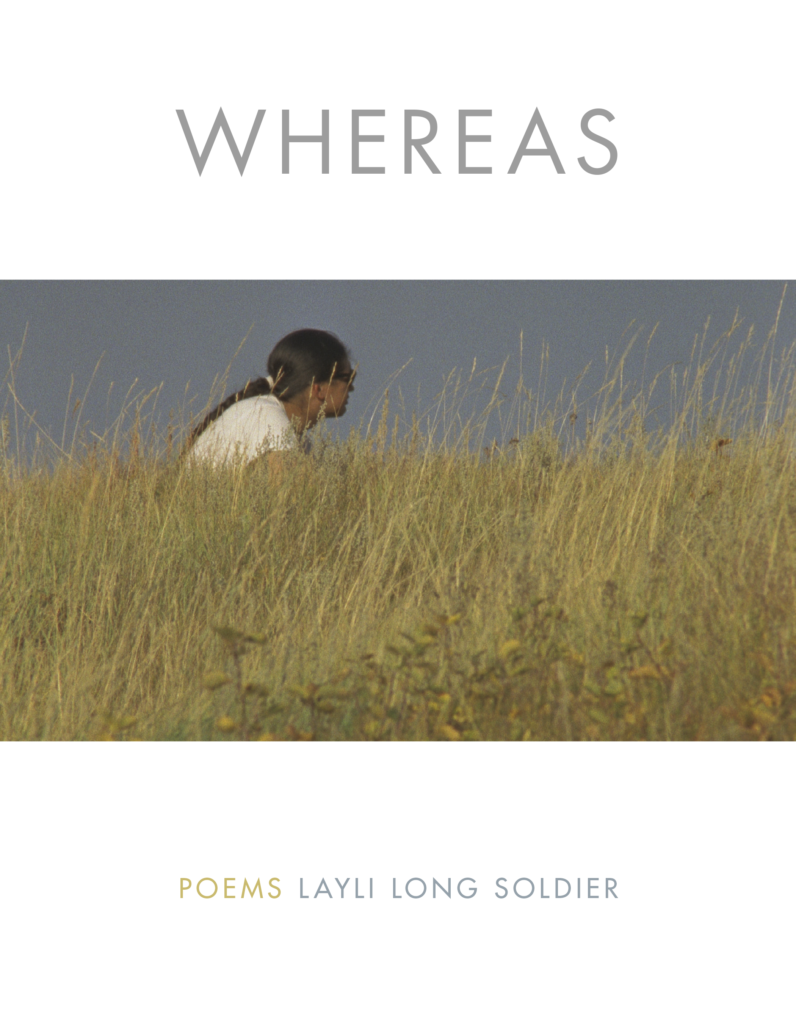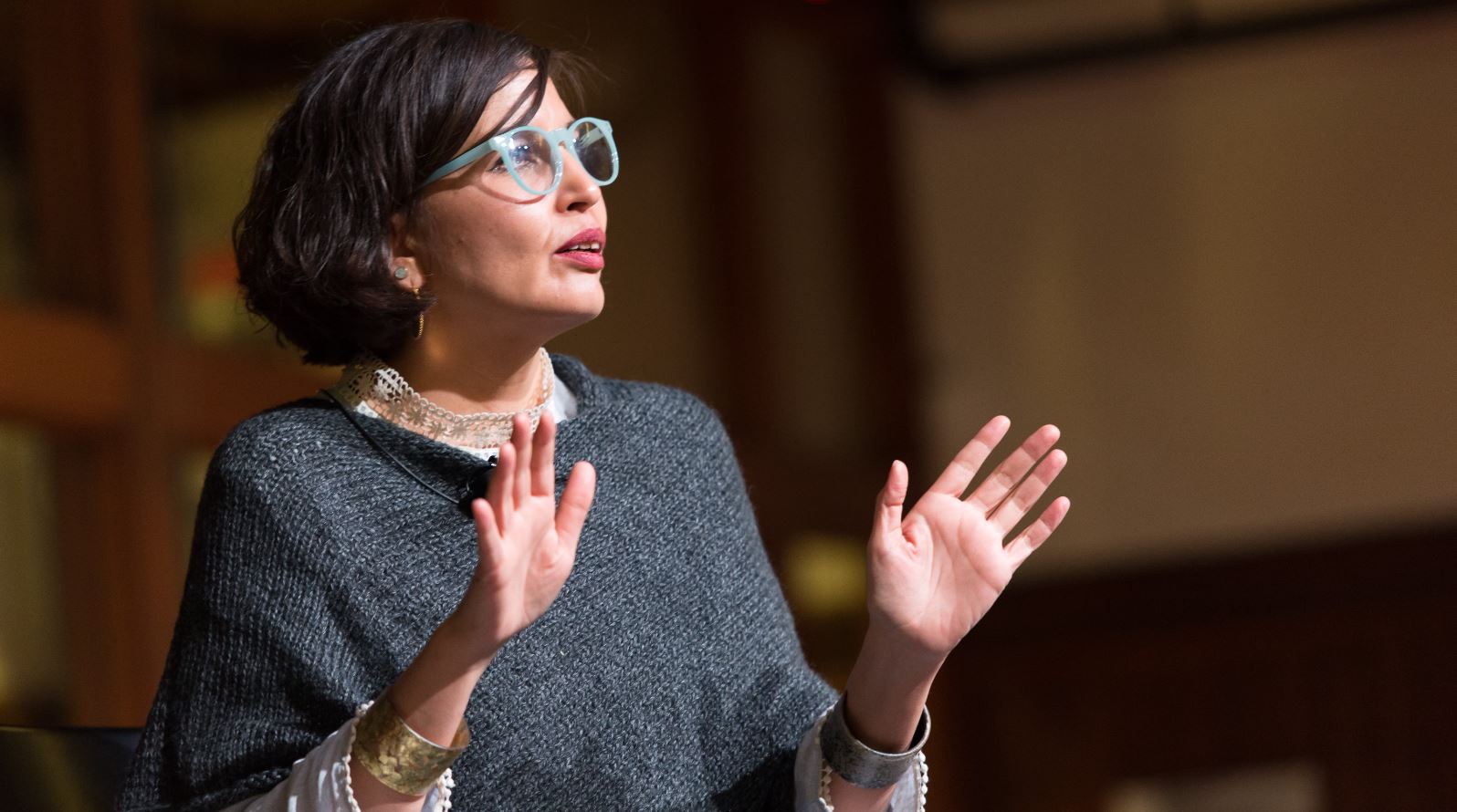Dive into the debut poetry collection, Whereas, by Layli Long Soldier, and learn how the poet voices the Indigenous People’s struggles against politicians in this review.
In a time when much of the world is on fire, what does it mean to resort to poetry? Is it an effective pursuit? Does it exact real change? One often hears these questions about the practice of poetry. Who is it for? Is it even necessary?
Well, one may consider it as another vessel that mimics life, that can raise questions, bring awareness to the injustices of the world or draw attention to the simplest joys around us. Its spectrum is broad and far-reaching. Poetry of activism has always been around, and it is only gaining momentum in the times we are in. In lieu of that, let’s dive into one such book that protests loud, pushes back and hopes to bring to light the measly apologies that wrong-doers come up that serve no more than window-dressing.
About Layli Long Soldier
Layli Long Soldier is a poet, writer and activist. She is a citizen of the Oglala Lakota Nation. She graduated from the Institute of American Indian Arts and earned her Master’s from Bard College. Whereas is her debut collection of poetry published in 2017 by Graywold Press. It won the National Book Critics Circle award and was also a finalist for the National Book Award. She has received a National Artist Fellowship from the Native Arts and Culture Foundation, a Lannan Literary Fellowship and the Whiting Award.
The premise of Layli Long Soldier’s book, Whereas

Layli Long Soldier’s book of poems Whereas is an astutely told personal account of the poet’s Indigenous roots. Layli explores how politicians have affected Native American life. The first poem starts with an inspection of a language (both legal and otherwise) that oppressors have used to wash their hands of the crimes they have committed against Native people in their own lands.
In the introduction to the title poem, Layli says that she wrote it in response to Barack Obama’s signing off on the Native American Apology Resolution in 2009 and not drawing attention to it. It seems that the act was intentional. Does an apology matter if the people you are apologizing to are not present and do not even hear the apology because it was not even said out loud? The word that strikes out most in the introduction is ‘Appropriation’ placed next to the word ‘Defense’.
Related to Indigenous People in Pop Culture: Killers of the Flower Moon (2023) Movie Review
Is an Apology Enough to Erase Centuries of Trauma Caused by Colonizers?
The title of the book – Whereas – itself becomes a powerful word when attached to any legal narrative that the government spins. It serves well to point toward the story that’s not being told. What is even more hurtful is the disclaimer that states that the content of the Resolution will not support or settle any claims against the US. If there is no admission of guilt or offer of reparations, what is the apology even for? What do people with deep-rooted trauma do with such a non-effective statement? These are the questions that Long Soldier asks through this collection.
What is the Native American Apology Resolution?
In 2009, ahead of Columbus Day, which falls on the second Monday of every October, the US Senate passed a resolution that sought to apologize to Native Americans for historic acts of violence and the injustices done to them by federal governments in the past.
Columbus Day has been celebrated since 1792 to commemorate Christopher Columbus’ arrival to the Americas in 1492. However, in recent times, woke groups have pushed back against the celebration of someone who enabled colonization and the killing of Native people by renaming Columbus Day as Indigenous People’s Day. It stands as a counter-celebration instituted by Berkeley, California, in 1992 to coincide with the 500th anniversary of Columbus arriving in America.
But here is the irony – Columbus never set out to find America; he always thought that he would find some part of Asia if he sailed west from Spain. He never found Asia but stumbled upon the Bahamas, which is not even part of the US. This is a country that continues to celebrate Columbus’ discovery (which might not even be accurate) and then tries to hide an official apology to the people who suffered, through great grief and loss, within a spending bill. The apology was not announced or publicized.
Navigating Two Spaces at Odds with Each Other At Once
The first part of the book draws at native heritage through words, landscapes and myths. The second part deals with the bureaucratic language used in the Apology. In both parts, Long Soldier tries to expose what is at stake. She tries to show that offers of neutrality are not good enough considering the atrocities of the past. She tried to expose the politics of language and show how it is necessary that we stay vigilant. For eg., in the poem series ‘Ȟe Sápa’, the title translates to Black Mountain (and not Black Hills). Colonizers loosely translated the original into the latter, showing how little they cared about the native culture. There is tension in each poem, which is mirrored by Layli’s dual citizenship of being an American and being a member of the Oglala Lakota Nation, where she struggles to come to terms with one history, culture and language which has to survive systematic attempts of erasure by the other. Part II of the poem “Dilate”:
All is experienced
throu
g
h
the
body
does so much of the thematic heavy lifting in terms of pointing toward intergenerational grief stemming from genocidal events. It makes one think beyond the annihilation of Native Indians in America and Australia to include mass victims of the Holocaust in Germany, the Apartheid in South Africa, the Partition of the Indian subcontinent, the Israeli violence against Palestinians in the Gaza strip, the state of Uyghurs in China, and that of the Rohingyas in Myanmar. The list keeps getting longer without respite. History has failed to teach politicians anything.
Also Read: 6 Controversial Banned Books in World Literature and Why You Should Read Them
Performance as Poetry in Whereas
The memorial for the Dakota 38 is not an object inscribed with words, but an act.
The Defense Appropriations Act then becomes an expert subversion, a shoddy attempt at both poetry and apology in action. Long Soldier writes about the Sioux Uprising of 1862 through her sporadic guidelines in “38”, when the eastern bands of Dakota, collectively called Santee Sioux, were facing starvation and displacement from white settlers. She mentions how one trader, Andrew Myrick, would not provide credit to the Dakota people and is known to have said, “If they are hungry, let them eat grass.” To retaliate, the Sioux attacked them. The war lasted five weeks, resulting in the loss of life of many settlers and traders. Andrew Myrick’s body was found with his mouth stuffed with grass.
I am inclined to call this act by the Dakota warriors a poem
There’s irony in their poem
There was no text.
In the aftermath, the Dakota people were exiled from their homeland, and as Long Soldier informs us:
The Dakota 38 refers to thirty-eight Dakota men who were executed by hanging, under orders from President Abraham Lincoln.
Why You Should Read the Book Whereas
This book is a criticism of the ideologies of the so-called Left. She mentions how in a film made on Abraham Lincoln, the uprising was not mentioned. This happens all the time in modern culture. Recently, with Oppenheimer, so many facts about the man and his project were left out. Is it ethical to say one truth and not the other inconvenient one? Is ‘not saying’ also a form of lie, a means to manipulate an outcome? Long Soldier’s book asks all these pertinent questions. In that way, it makes sense that Layli rejects existing forms and creates her own syntax, introduces new poetic shapes, and inserts and pulls out the breath from in/out of words. Words that for so long have minced the histories of her people.

